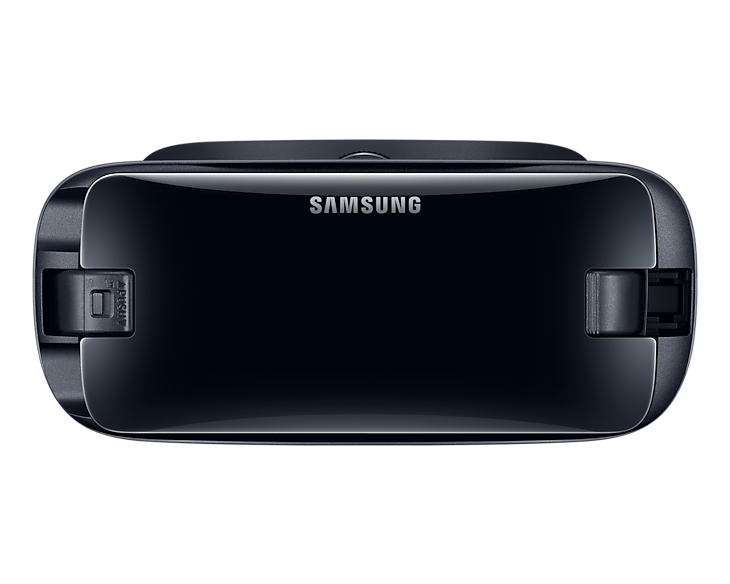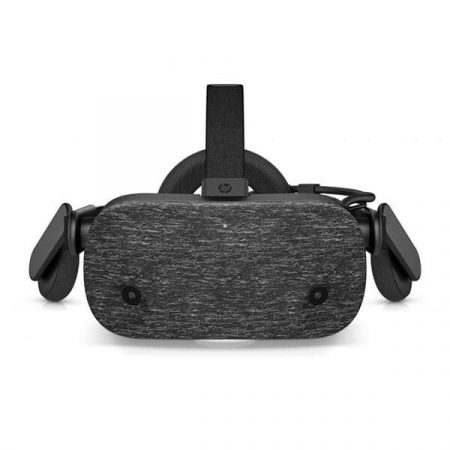Samsung Gear VR vs HP Reverb Consumer Edition
When you compare the Samsung Gear VR to the HP Reverb Consumer Edition you can see which VR Headset is better. Let's take a look of the comparison, and see which model of VR Headset out ontop.
 Samsung Gear VR
Samsung Gear VR3.9
Based on 6 reviews
Lowest prices
What VR Headset is better?
After testing both the Samsung Gear VR and the HP Reverb Consumer Edition, I can confidently say that both virtual reality headsets provide a great experience for users. The first difference between the two is their target audience; while the Samsung Gear VR is more suitable for smartphones, the HP Reverb is designed specifically for PC use.
The Samsung Gear VR has a field of view (FOV) of 101 degrees and a resolution of 2560 x 1440 px, making it suitable for enjoying movies or playing games on your smartphone. Additionally, its refresh rate of 60 Hz ensures smooth operation and low latency in terms of movement tracking. On top of that, its operating system allows you to access a range of applications such as Netflix or Hulu without having to worry about compatibility issues. As far as cons go, one drawback might be that this headset only works with certain phones from Samsung’s Galaxy series; if you don’t have one then this device isn't compatible with your phone.
The HP Reverb Consumer Edition takes things up a notch when it comes to specs with its FOV at 114 degrees and resolution at 2160 × 2160 px — making visuals incredibly sharp and clear even when playing games or watching movies on your PC. It also offers room scale tracking which allows you to move freely in larger spaces while still receiving feedback from all angles; something especially useful if you like exploring virtual worlds while gaming. Its refresh rate is an impressive 90 Hz which ensures smooth operations free from stutters even during fast-paced moments such as racing games or shooter titles. The only downside would be its minimum CPU requirement — Intel Core i7 — which might be too expensive for some users looking to get into PC virtual reality gaming without breaking the bank just yet.
In conclusion, I personally prefer using the HP Reverb Consumer Edition due to its superior specs when compared to those found in the Samsung Gear VR; plus being able to explore large environments with room scale tracking really takes immersive experiences up another notch over simply sitting down or standing up in place as found in other devices such as Oculus Go or Playstation VR units respectively. Furthermore, requiring only an Intel Core i7 processor makes it quite accessible for most modern PCs today – something that can’t be said about many other headsets targeting mid-tier gaming rigs instead - allowing gamers of all levels an opportunity to dive into virtual reality without sacrificing too much performance quality just yet - something I'm sure any tech enthusiast can appreciate!
Specs comparison between the two VR Headsets
| Samsung Gear VR | HP Reverb Consumer Edition | |
|---|---|---|
| Overview | ||
| Brand | Samsung | HP |
| Model Name | Gear VR | Reverb Consumer Edition |
| Release Date | 2017 | 2019 |
| Country of Origin | South Korea | United States |
| Category | Smartphone VR | PC VR |
| Battery Life | 3 h | |
| Display | ||
| Field of View | 101° | 114° |
| Resolution | 2560 x 1440 px | 2160 × 2160 px (per eye) |
| Refresh Rate | 60 Hz | 90 Hz |
| Display Type | Display of inserted smartphone | LCD |
| Minimum Requirements | ||
| Min. CPU Required | Intel Core i7, Intel Xeon E3-1240 v5 | |
| Min. Graphics Required | Nvidia GTX 1080, Nvidia Quadro P5200, AMD Radeon Pro WX 8200 | |
| Min. RAM Required | 16 GB | |
| Operating Systems | Android | Microsoft Windows |
| Sizing | ||
| Weight | 345 g | 500 g |
| Dimensions | 207 × 121 × 99 mm | 177 × 55 × 84 mm |
| Features | ||
| Room Scale? | YES | YES |
| 360 Tracking? | YES | YES |
| Positional Tracking? | No | YES |
| Front Camera? | No | YES |
| Eye Tracking? | YES | |
| Usable with Glasses? | No | |
| Cooling System | No | |
| Built in Headphones? | No | YES |
| Built in Microphone? | No | YES |
| Flip Visor? | No | YES |
| Voice Command? | YES | |
| IPD Adjustment? | No | |
| Lens to Eye Adjustment? | YES | |
| USB? | YES | YES |
| MicroUSB? | YES | |
| Display Port? | YES | YES |
| Mini Display Port? | YES | |
| HDMI? | No | |
| MicroSD? | YES | |
| Bluetooth? | YES | YES |
| Wifi? | YES | |
